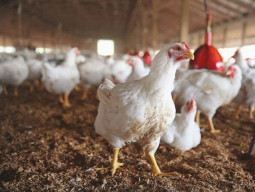
Keepers at the Taipei Zoo were excited after the resident giant panda Yuan Yuan started showing signs of pregnancy like loss of appetite and a thickening of the uterus. Yuan Yuan’s fecal progesterone concentration was also on the rise.
However, the ultrasound scans revealed that the panda's pregnancy was a false alarm, a Chinese media outlet reported.
Yuan Yuan was artificially inseminated earlier this year.
Pregnant pandas in captivity are treated like queens by zoo keepers, providing them with more buns, fruits and bamboo besides being given “single rooms with air conditioning” and “round-the-clock care,” Daily China reported.
Experts, however, suspect that Yuan Yuan, who gave birth to a cub in 2013, may have been feigning pregnancy to reap these added benefits.
Yuan Zai was delivered on July 6 last year following a series of artificial insemination sessions because her parents -- Tuan Tuan and Yuan Yuan -- failed to conceive naturally.
A similar incident was noticed last year when another female panda named Ai Hin, living at the Chengdu Research Base of Giant Panda Breeding, was accused of trying to pull the same trick.
“After showing prenatal signs, the [panda] 'mothers-to-be' are [pampered],” Wu Kongju, an expert at the Chengdu Research Base, told CNN last year. “So some clever pandas have used this to their advantage to improve their quality of life.”
However, other panda experts disagree with these accusations, claiming that pseudo-pregnancies are quite common in pandas.
"This phenomenon occurs in 10 to 20% of pandas," said Zhang Heming, director of the China Research and Conservation Center for the Giant Panda. "After the mother panda is inseminated, if her health isn't so good, the pregnancy will terminate, but she'll still behave as if she's pregnant."
According to a 2010 LiveScience report, scientists "don't know why pseudo-pregnancies happen, or if they have evolved for an evolutionary purpose."
The article originally appeared on Huffingtonpost

















COMMENTS
Comments are moderated and generally will be posted if they are on-topic and not abusive.
For more information, please see our Comments FAQ